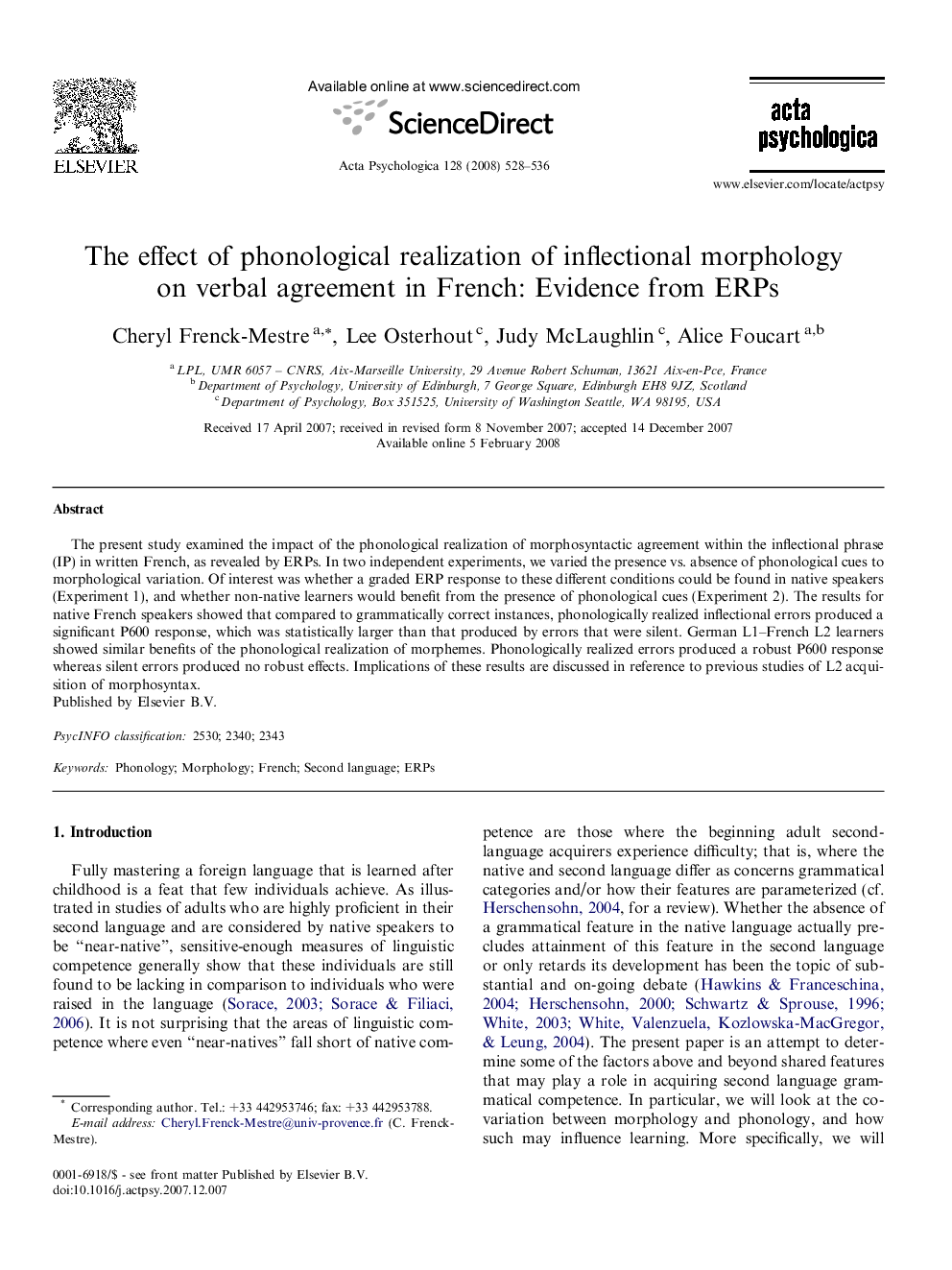| Article ID | Journal | Published Year | Pages | File Type |
|---|---|---|---|---|
| 920584 | Acta Psychologica | 2008 | 9 Pages |
Abstract
The present study examined the impact of the phonological realization of morphosyntactic agreement within the inflectional phrase (IP) in written French, as revealed by ERPs. In two independent experiments, we varied the presence vs. absence of phonological cues to morphological variation. Of interest was whether a graded ERP response to these different conditions could be found in native speakers (Experiment 1), and whether non-native learners would benefit from the presence of phonological cues (Experiment 2). The results for native French speakers showed that compared to grammatically correct instances, phonologically realized inflectional errors produced a significant P600 response, which was statistically larger than that produced by errors that were silent. German L1-French L2 learners showed similar benefits of the phonological realization of morphemes. Phonologically realized errors produced a robust P600 response whereas silent errors produced no robust effects. Implications of these results are discussed in reference to previous studies of L2 acquisition of morphosyntax.
Related Topics
Life Sciences
Neuroscience
Cognitive Neuroscience
Authors
Cheryl Frenck-Mestre, Lee Osterhout, Judy McLaughlin, Alice Foucart,
